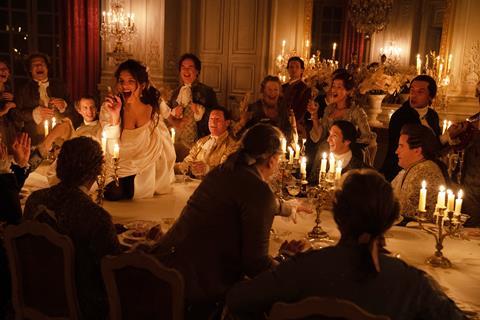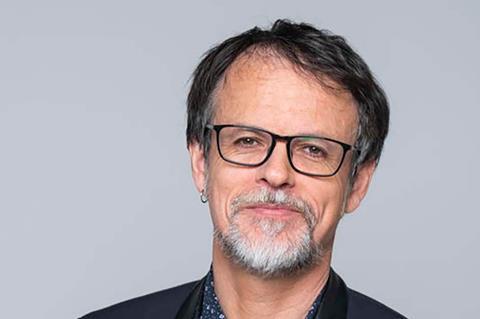
France Télévisions will again make a big splash at Cannes, returning as the festival’s official media partner for the second year alongside digital media powerhouse Brut, with the tagline, “We share the love of cinema.”
One of five French public service broadcasters (others include international channels Arte and TV5Monde, and radio group Radio France), France Télévisions will air the festival’s opening and closing night ceremonies as well as Cannes-centric programming across all its networks. It is also co-producer on 16 films in official selection, not least Maïwenn’s opener Jeanne Du Barry and five Competition titles.
France Télévisions’ Croisette takeover may be relatively new for the group, but not for its head of cinema and international fiction Manuel Alduy. He arrived in 2021 after a long career at Canal+ (which had sponsored the festival for 28 years) and a brief foray at the Walt Disney Company in 2019 through its acquisition of 20th Century Fox.
Alduy has a two-fold task at France Télévisions: bringing audiences to theatres and also keeping them at home to watch programmes and films. He says his aim is to position France Télévisions as “a big and free window for cinema” whether that is “cinema in theatres or on small screens”. The ambition, he explains, is to offer “films of all genres and styles — a little something for everyone”.

Investment strategy
The public broadcaster is a champion of film in France. Each year, it airs around 300 titles on its main channels — including France 2, France 3 and France 5 — in addition to around 200 on AVoD streaming service France.tv. It is obliged by the French government to invest at least $66m (€60m) per year in European and original French-language films.
Traditionally, France Télévisions co-produces around 60 features a year, although this number will dip slightly in 2023. “Our budget is the same, but films cost more money and we are being more selective,” Alduy says. The group also supports theatrical releases through provision of marketing funds for around 60 films per year, mostly ones it has co-produced. However, the broadcaster does not distribute films itself.
This year’s slate, he says, is “illustrative of our different editorial approaches” to production. He cites Jeanne Du Barry as “an important film for us because we aim to support a new era of French female filmmakers making big-budget historical epics, not just intimate indie dramas”.
France Télévisions is also behind two genre films in the selection: Just Philippot’s Acid and Un Certain Regard opening film The Animal Kingdom (La Règne Animal) by Thomas Cailley. It has also backed auteur-led features such as Valérie Donzelli’s Just The Two Of Us.
The broadcaster invests mostly in films that are in the French language, shot in France or with stories related to the territory, but it does back some international filmmakers. For example, it has supported Ken Loach’s The Old Oak and Nanni Moretti’s A Brighter Tomorrow, both here in Competition.
France Télévisions also acquires indie international films such as Academy Award winner Everything Everywhere All At Once, Thomas Vinterberg’s Another Round and Lukas Dhont’s Close. “We want to attract the crème de la crème of independent cinema,” Alduy says of the acquisition strategy of France Télévisions, whose competitors include Canal+ and commercial networks M6 and TF1.
Alduy works closely with his team, which includes programme adviser Elodie Drouard, deputy head of acquisitions Deborah Cohen and head of programming Cyril Giraudbit, in what he calls a two-step plan. “First, we evaluate the projects, then we discuss with and convince programming colleagues in the group’s different networks.”
Alduy’s arrival at France Télévisions in 2021 coincided with a seismic shift in a French industry buffeted by the pandemic and the arrival of platforms such as Netflix, Disney+ and Prime Video, with the executive noting the competition has changed the broadcaster’s strategy.
“Before, France Télévisions’ aim was to co-produce French films, mostly heritage-oriented titles that would air in primetime on France 2 and 3,” he says.
“Today, we have a wider palette and extend our film offer to all our channels — not just France 2 and 3, but to France 5, Culturebox and our France.tv platform.”
Alduy uses the word “frenemies” to describe rival platforms: “We are competitive, of course, because we want the attention of audiences, but we do a lot of things together.” Canal+ subscribers, for example, can watch France Télévisions on its service and both groups are often co-producers or co-investors on the same films.
Despite the competitive challenges, Alduy is optimistic. “A lot of things are unstable, but theatrical distribution is coming back,” he asserts. “And not just for big blockbusters — for all genres. French production is ambitious and artistic.”






![The Brightest SunScreen[Courtesy HKIFF]](https://d1nslcd7m2225b.cloudfront.net/Pictures/274x183/3/5/0/1448350_thebrightestsunscreencourtesyhkiff_312678.jpg)


















No comments yet